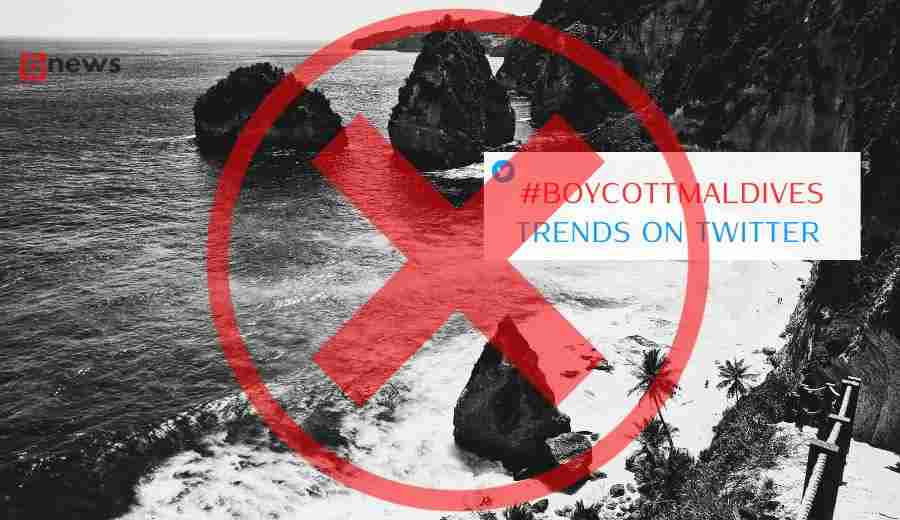#BoycottMaldives Trends on Twitter as Tourism Takes a Hit

#BoycottMaldives Trends on Twitter:
Turquoise waters lapping against pristine strands, luxurious overwater bungalows bruiting pledges of insulation, and the narcotic meter of islet life – this was the Maldives, a sun-drenched card of paradise. But recently, the card has cracked, the hashtag #BoycottMaldives trending on Twitter like a dark storm pall over the cays. What caused this shift? Let’s unravel the vestments of tourism, politics, and public sentiment behind this boycott movement.
The spark seems to lie in a recent comment by a Maldivian minister, interpreted by some as asleep towards India, a major contributor to Maldivian tourism. This burned a surge of online wrathfulness, with Indian netizens taking to Twitter to express their disapprobation.#BoycottMaldives came a marshaling cry, fueled by calls for profitable retribution and an are-evaluation of tourism precedences.
#BoycottMaldives still, the story goes beyond a single tweet. Rising trip costs, enterprises about environmental impact, and a perception of the Maldives feeding primarily to a fat nobility had formerly created murmurs of disgruntlement amongst some trippers. The minister’s comment came to a tilting point, amplifying reservations and fueling a larger boycott movement.
The impact is inarguable. hostel bookings from India, particularly for the forthcoming peak season, are reported to be down. Tour drivers are venting enterprises, and the Maldivian tourism assiduity, heavily reliant on Indian callers, is gaping at an implicit fiscal storm.
But is blacking an entire nation the answer? The situation is nuanced. numerous Maldivians condemn the minister’s reflections and stand in solidarity with Indian trippers. Small businesses and original communities frequently have little to do with political statements, and their livelihoods depend on tourism. Blindly blacking the entire country could be a gratuitous difficulty for innocent people.
The question is not “Should we swap the Maldives?” but rather,” How can we engage responsibly?” Open communication, regardful dialogue, and a focus on sustainable tourism practices are crucial. Demanding responsibility from officers while supporting responsible trip businesses and original communities can be a further formative approach.
This incident also highlights the growing power of social media in shaping trip choices. Tourist destinations are no longer unresistant realities; they live within a global discussion, their character swayed by online sentiment. Governments and tourism boards need to be aware of this, ensuring their programs and conduct align with the values of their target followership.
With its stirring beauty and unique culture, the Maldives deserves further than a hasty boycott. rather, this moment can be an occasion for genuine engagement, fostering artistic understanding and shaping a tourism assiduity that benefits both callers and locals. Let’s not lose sight of the paradise beneath the hashtag, but find ways to navigate its complications with responsible choices and open hearts. For more…




